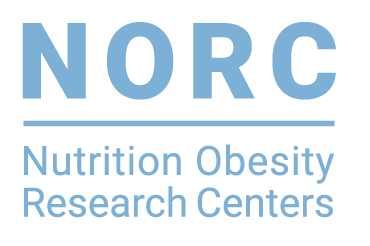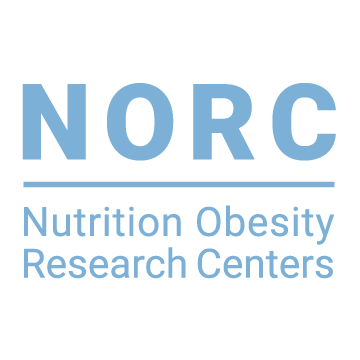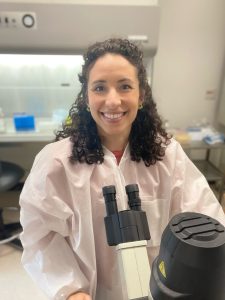University of Washington
 Kimberly Alonge, PhD
Kimberly Alonge, PhD
Assistant Professor, Medicinal Chemistry, University of Washington
Dates of Funding: 07/01/22-06/30/24
Contact Information
kalonge@uw.edu
Role of hypothalamic PNNs in nutrient and hormone sensing dysfunction in obesity
Faculty Background: Dr. Alonge received her PhD in Biochemistry and Molecular Biology at West Virginia University. She then conducted her postdoctoral studies at the University of Washington within the Department of Medicine in the laboratory of Dr. Michael W. Schwartz. Dr. Alonge was recently promoted to an Assistant Professor of Medicinal Chemistry with a joint appointment in the School of Medicine’s Division of Metabolism, Endocrinology and Nutrition at the University of Washington. Her research focuses on understanding the functional significance of extracellular matrix changes in metabolic and neurological diseases.
Project Description: That obesity and type 2 diabetes (T2D) are among the most pressing and impactful biomedical challenges confronting modern society highlights the need for an improved understanding of the underlying disease mechanisms. Growing evidence suggests that the central nervous system transduces input from circulating hormones and nutrients into neuronal responses that maintain energy- and glucose- homeostasis and that dysfunction in this system contributes to the pathogenesis of obesity and T2D. Recent work from the Alonge laboratory has found that perineuronal nets (PNNs), which are specialized matrices that regulate the connectivity and activity of neurocircuits, enmesh key neurons involved in the regulation of energy- and glucose metabolism in the hypothalamic arcuate nucleus. Her work further shows loss of PNNs in both mouse models of diet-induced obesity and in obese and diabetic humans. Dr. Alonge hypothesizes that the obesity and diabetes-associated loss of hypothalamic PNNs results in altered diffusion of charged factors, including hormones, nutrients, and other metabolites, within this critical brain region resulting in hormone- and nutrient-sensing dysfunction characteristic to metabolic impairments. The concept that hypothalamic PNNs may play a key functional role in hypothalamic sensing of hormones and nutrients through changes in extracellular space diffusion dynamics, and that defects in metabolite diffusion may contribute to the obesity and T2D pathogeneses, constitutes an innovative area of research at the interface of metabolism and neuroscience with relevance to future therapy development.
 Oleg Zaslavsky, PhD, MHN
Oleg Zaslavsky, PhD, MHN
Associate Professor, Nursing, University of Washington
Dates of Funding: 07/01/22-06/30/24
Contact Information
ozasl@uw.edu
Pilot Evaluation of a Mobile Intervention to Support Mediterranean Diet (MedD) for Persons with Mild Alzheimer Disease and Alzheimer Disease Related Dementia’s (AD/ADRD) and Frailty
Faculty Background: Dr. Zaslavsky obtained his Bachelor of Science at the University of Haifa, Israel before completing his doctoral degree from the University of Washington School of Nursing focused on advanced statistics and frailty. Dr. Zaslavsky is currently an Associate Professor within the School of Nursing at the University of Washington. His research focuses on developing digital tools to promote health in older adults with frailty and dementia.
Project Description: Frailty, Alzheimer’s Disease (AD), and AD-related dementias are progressive conditions that disproportionally affect the same age group and share many risk factors and clinical features. Given that no treatments prevent or slow the progression of dementia, frailty might be a practical target for interventions to reduce the severity of the cognitive decline in persons with dementia. Lifestyle interventions such as healthy eating reduce risks of frailty and brain degeneration. The Mediterranean diet (MedD) is especially pertinent because of its cardioprotective, anti-inflammatory, and pro-metabolic properties, all of which are linked to the physiology of frailty and AD. In fact, observational and intervention studies have consistently shown that people adhering to MedD have less frailty, better brain morphology, and higher function. However, unfortunately, most MedD interventions are limited for implementation at the population level because of the high cost. This project is focused on the development of a mobile behavioral intervention to improve adherence to MedD for adults age 65 and older with mild-to-moderate frailty. The ultimate goal is to support population-level scalable and affordable interventions for secondary dementia risk reduction.
Ana Valencia, PhD
Acting Instructor
Dates of Funding: 2022
Contact Information
apv4@uw.edu
The Role of mitochondrial metabolism in weight loss in the context of obesity
Project Description: This project seeks that following weight loss, there will be a reduction in mitochondrial metabolism in peripheral tissues once a plateau is achieved, and the magnitude of inhibition will be proportional to degree of caloric restriction and reduction in energy expenditure.
Barbara Juarez, PhD
Assistant Professor
Dates of Funding: 2022
Contact Information
bjuarez@som.umaryland.edu
Effect of a high-fat diet on VTA dopamine neuron activity and behavior
Project Description: This project seeks to determine the effects of high-fat diet feeding on these VTA dopamine neuron subpopulations and if disrupting dopamine activity in these subpopulations impacts feeding behaviors.

Meghan Koch, PhD
Assistant Professor, Basic Sciences Division, Fred Hutchinson Cancer Research Center
Dates of Funding: 07/01/21-06/30/23
Contact Information
mkoch@fredhutch.org • Phone: (206) 667-3655
Regulation of white adipose tissue function and energy balance by breastmilk antibodies
Faculty Background: Dr. Koch received a doctorate in immunology in 2010 from the University of Washington. She conducted postdoctoral studies at the University of California, Berkeley from 2011 to 2018, when she accepted a position as an assistant professor in the Basic Sciences Division at the Fred Hutchinson Cancer Research Center. Dr. Koch’s group studies maternal-offspring interactions, focusing on immunity, metabolism and the microbiota.
Project Description: Accumulating epidemiological studies link breastfeeding with long-term metabolic health, yet the mechanisms underlying this association remain unclear. Using a mouse model system, Dr. Koch’s group recently identified maternal antibodies, transmitted via breastfeeding, as an essential regulator of healthy metabolism in offspring. Offspring that do not receive maternal antibodies exhibit persistent perturbations in lipid homeostasis, including reduced adiposity, impaired glucose homeostasis and insulin resistance. This project seeks to understand the mechanisms linking this early life process (acquisition of breastmilk antibodies) with durable health outcomes (lipid homeostasis and insulin resistance). Breastmilk antibodies coat commensal bacteria in the guts of suckling offspring and mediate the initial host-microbiota interactions in neonates. Dr. Koch’s research has found that in the absence of breastmilk antibodies, neonates mount inappropriate adaptive immune responses to beneficial gut microbes. Owing to the ability of adaptive immune cells to form memory responses that persist throughout the life of the host, she hypothesizes that these dysregulated early life immune responses drive persistent impairments in metabolic function. Here, the Koch laboratory will characterize the metabolic dysfunction exhibited by offspring that don’t acquire breastmilk antibodies and assess the contribution of early life, dysregulated adaptive immune responses toward these long term metabolic impairments.

Jarrad Scarlett, MD, PhD
Acting Instructor of Pediatrics, Division of Gastroenterology and Hepatology
Dates of Funding: 2016-2018
Contact Information
Jarrad.Scarlett@seattlechildrens.org
Hypothalamic Mechanisms of FGF1-mediated Remission of Diabetic Hyperglycemia
This proposal focuses on evidence that members of the fibroblast growth factor (FGF) family play a key role in the regulation of glucose homeostasis.

Mauricio Dorfman, PhD
Research Assistant Professor of Medicine
Dates of Funding: 2016
Contact Information
dorfmanm@uw.edu
The Role of CNS CX3CL1-CX3CR1 Signaling in Estrogen-Mediated Protection Against Obesity and Diabetes
This study will determine if estrogen, a potent anti-inflammatory and regulator of feeding, blood sugar and metabolism, uses CX3CL1-CX3CR1 signaling to protect females from diet-induced obesity (DIO). Using genetic and pharmacologic approaches, we will also test the ability of CX3CL1 to prevent and/or treat DIO.

Davene Wright, PhD
Assistant Professor of Pediatrics
Dates of Funding: 2016
Contact Information
Davene.Wright@seattlechildrens.org
Parent Attitudes Toward Child Health and Weight
This study aims to quantify parental biases around recognizing childhood obesity-related health risks and identify factors that influence accurate predictions of health risks.



